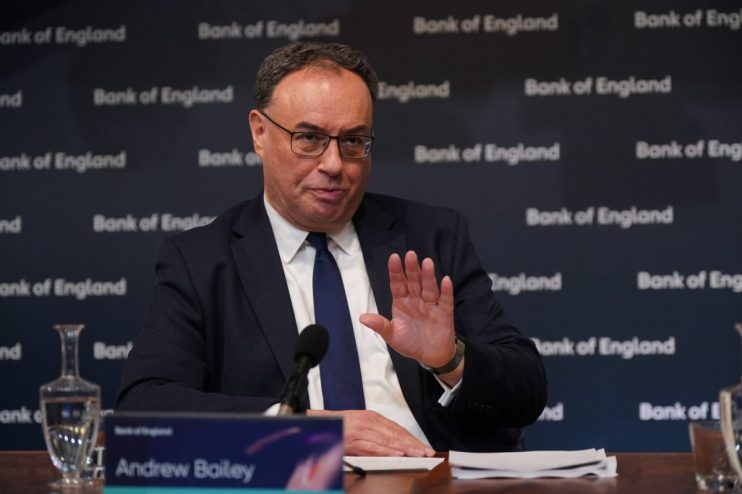Analysis: Why record wage growth will give the Bank of England kittens – and see them raise rates again

Good news all round, then? Wage growth topped 7.8 per cent in April to June, the highest pace since at least 2001 and moving Brits towards the hallowed ground of real terms pay increases.
They’ve been falling for months as inflation has raced ahead of pay rises.
But the speed of those wage increases will give Andrew Bailey and the Bank of England plenty to think about.
Consensus for this wage growth readout was for around 7.4 to 7.5 per cent.
The final number of 7.8 per cent, however, suggests that wage growth is now embedded in the economy.
That number strips out irregularities like an NHS bonus scheme, too.
And though inflation is expected to fall when tomorrow’s official data comes out, to around 6.7 per cent in July, that wages are running so hot means the Bank of England will likely be further emboldened to hike interest rates.
Andrew Bailey was – rightly – pilloried when he suggested that Brits shouldn’t ask for a pay rise this year. And his deputy, the Bank’s chief economist Huw Pill, hardly covered himself in glory when he said that we’d all have to accept things were going to get a bit worse for a while.
Neither seemed to clock that it was the Bank’s tortoise-like response at the start of this inflation cycle that allowed the price hikes hare to get away so quickly.
But their point was that if wages shot up to match the ‘transitory’ shock of higher energy bills and food prices in the wake of Russia’s invasion of Ukraine, it would embed inflation into the wider economy.
That wage price spiral – in which wages have to keep up with costs, thus forcing firms paying those wages to hike costs further – appears to have become a feature of the British economy.
“The Bank of England will be studying this week’s data carefully, but even if inflation falls as expected in tomorrow’s CPI print following a drop in energy prices, the inflationary pressure of still rising wage growth means the Bank is unlikely to put a halt on further rate rises just yet,” reckons Richard Carter, head of fixed interest research at Quilter Cheviot, and he’s right.
Though the inflation print will be lower tomorrow, it will be core inflation – which has remained far higher than the Bank of England will like – that’s worth keeping an eye on.
Analysts will expect the Bank to continue to hike rates – and many will be worried that the higher-than-expected wage growth figure may encourage the Bank of England to hit peak rates at 5.75 per cent or 6 per cent.